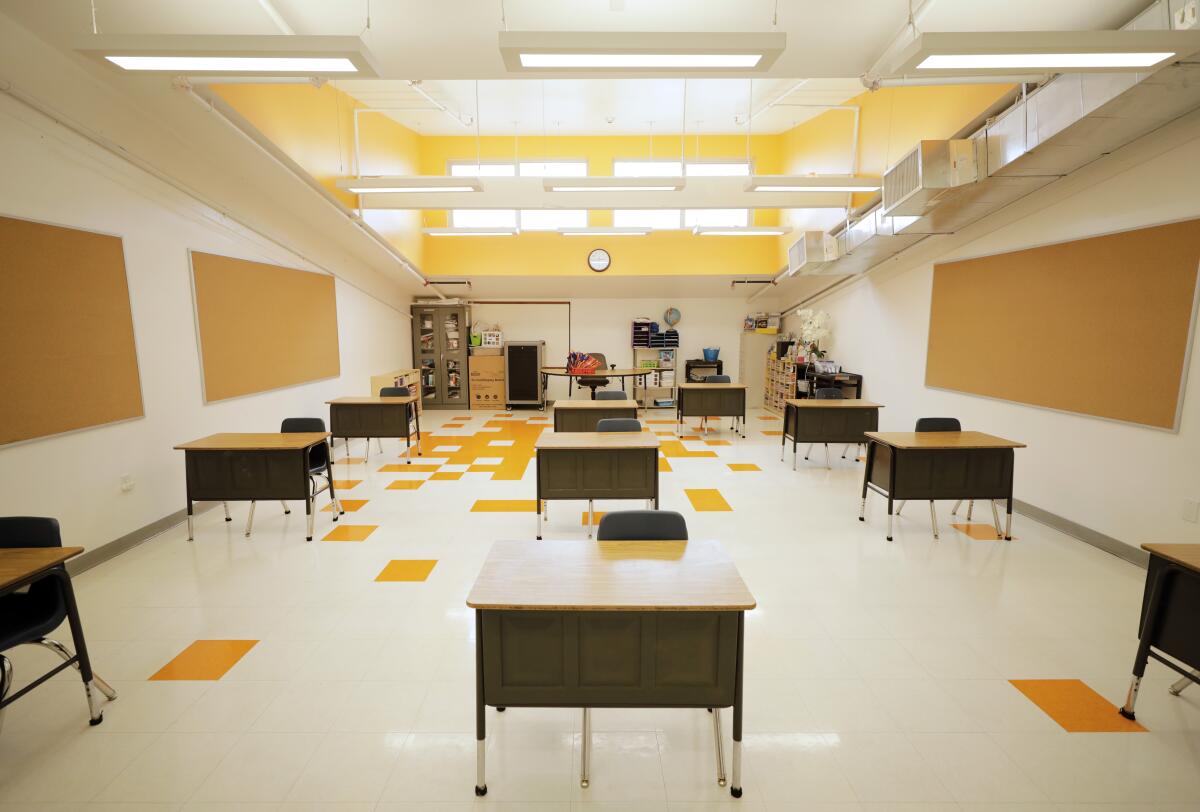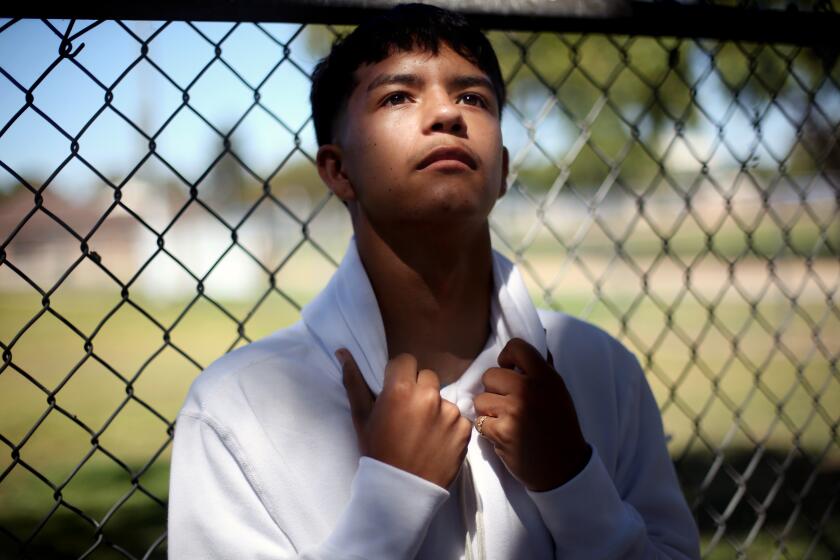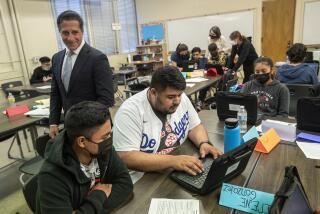Education is a top U.S. priority, and thereâs wide support for online learning, poll finds

As children begin school in Los Angeles on Thursday, public education is among Americansâ top priorities, and most believe students should continue their education through some form of distance learning, a national poll has found.
More than half, 54%, of the 2,200 adults surveyed said public school education should be a top priority for local officials, along with COVID-19, health care, the economy and safety/crime, according to the poll conducted by Morning Consult, a private company that does national political polling.
Nearly the same share of adults, 52%, said they opposed reopening K-12 schools for in-person instruction in fall 2020 amid the pandemic, and close to 80% said they believed hybrid, online-only or home-school instruction would be most beneficial for students.
Notably, some of these respondents wanted to persist with online education despite also saying that parenting had become more stressful because of COVID-19 and that the pandemic had forced them to become more involved in their childrenâs education.
Roughly three-quarters of respondents said the pandemic had exacted tolls on instructional quality in schools and studentsâ access to free or reduced-price meals, mental health counseling, and support with special emotional or learning needs.
The findings mirrored what educators, students and families in Los Angeles and California have described since pandemic-related school closures began in March.
Across southern California, a deep digital divide left some schools scrambling to provide laptops and Internet connections to students, who in some cases received little to no instruction in the spring. In Los Angeles Unified School District, where the majority of students are Black and Latino and eligible to receive free or reduced-price lunch, large numbers of students were absent from online learning last spring or were not in daily contact with their teachers.
Times survey finds profound disparities in distance learning between children attending schools in high-poverty areas and those in more affluent ones.
Of the 760,000 California children with disabilities, including 64,000 in Los Angeles Unified, many are not receiving the education, services or assessments they need â despite a mandate that school districts continue to provide special education. Parents have described enormous stress over providing adequate services to their children and worry that the gains theyâve made will be undone.
At the same time, while parents have expressed angst over the loss of services, inadequacy of Zoom and missed social opportunities for their children, many are simply unwilling to take chances with the safety and health of their children. The risk is compounded for Black and Latino families, who have suffered disproportionately during the pandemic.
âSchools are the heartbeat of these communities â they are the one institution that levels the playing field a tiny bit,â civil rights attorney and activist Connie Rice said. âWeâre not making up for that.â
Among the pollâs other results, most respondents said they approved of the way their school/school system had responded to the pandemic and had a favorable opinion of their childrenâs teachers last year.
At the national level, nearly 90% of voters identified education as an important issue when considering how they might cast their ballots in the presidential election this fall.
Most also said they did not trust President Trump or the federal government to ensure that schools operate safely this fall â but they did trust teachers to do so. The poll was conducted online from Aug. 4-10 among a national sample of 2,200 adults. The data were weighted to approximate a target sample.
The poll was commissioned by Murmuration, an organization led by Michael Bloombergâs daughter.
More to Read
Sign up for Essential California
The most important California stories and recommendations in your inbox every morning.
You may occasionally receive promotional content from the Los Angeles Times.












